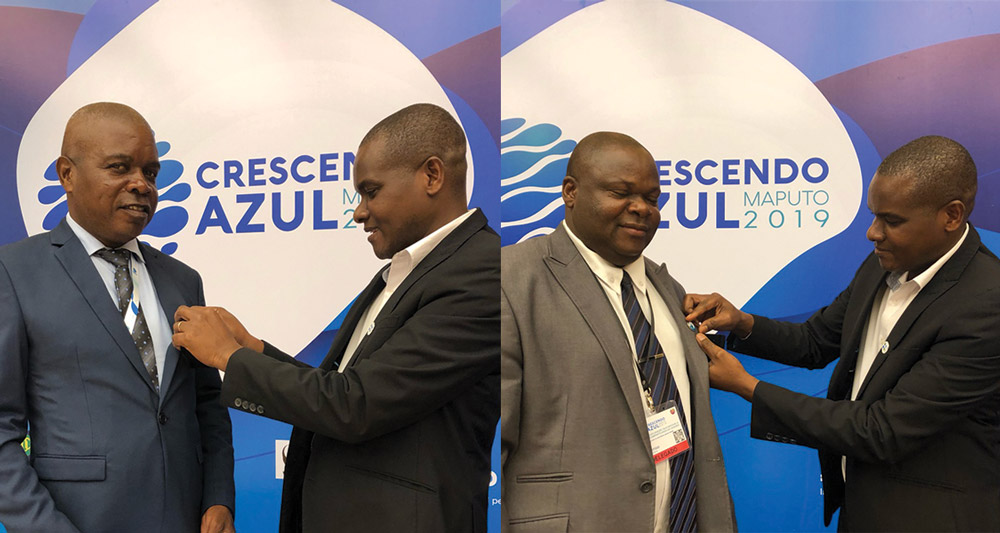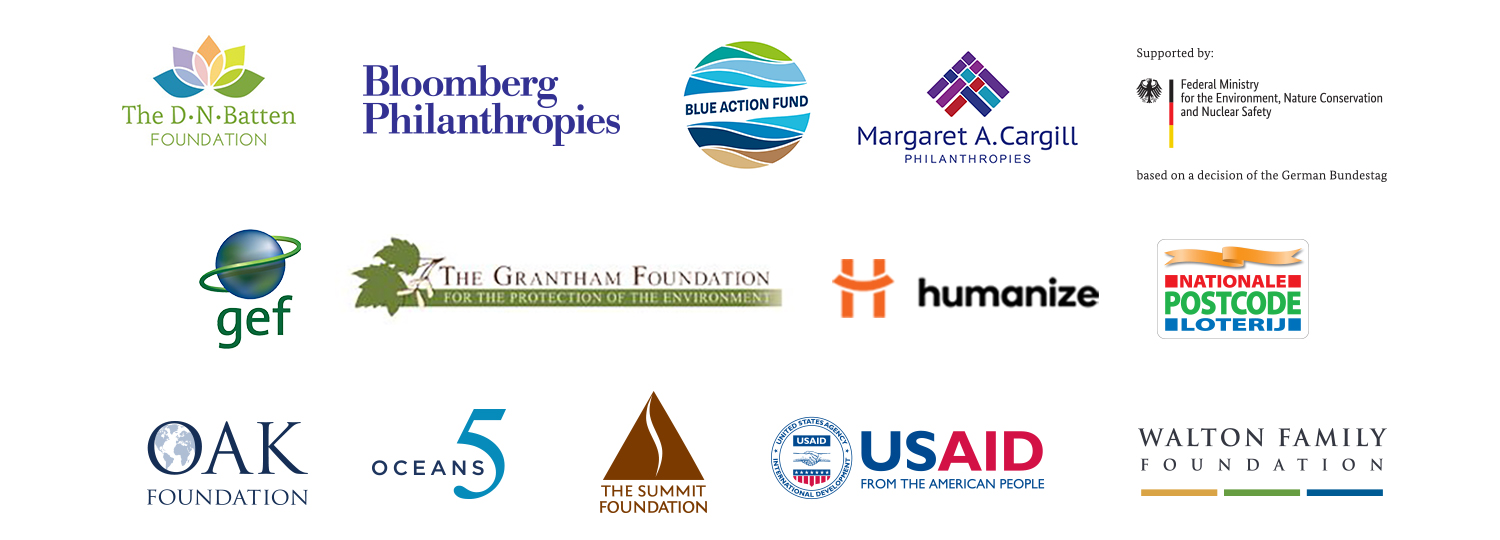Fish Forever represents coastal fishing communities at the first Growing Blue Conference in Mozambique

In his welcome address at the first Crescendo Azul (Growing Blue) conference in Maputo, May 23-24, Mozambique President Filipe Nyusi encouraged the event’s 500+ participants to take advantage of the “gifts” that the ocean provides for eradicating poverty and securing peace, prosperity, and sustainable natural resource use throughout the region. Importantly, President Nyusi, alongside others who offered opening remarks (the President of Seychelles, Mozambique’s Minister of Fisheries, the President of the International Fund for Agricultural Development, and the UN Special Envoy for the Oceans), noted the critical role of the small-scale fishing (SSF) sector in developing a sustainable and inclusive Blue Economy in Mozambique and regionally.
Balancing protection and production in a region with increasing interest in oil and gas development, mineral mining, and large-scale aquaculture remains a delicate challenge. Despite these competing interests, Growing Blue 2019 provided several opportunities to recognize and highlight the importance of SSF to the Blue Economy, noted below.
Linking Biodiversity and Conservation through Small-Scale Fisheries
In the Biodiversity and Conservation plenary, Rare Policy Director, Anna-Marie Laura, drew attention to SSF’s outsized role: “Small-scale fisheries, which operate in territorial (or coastal) waters and hold most marine biodiversity, serve as the basis of survival for many fishing-dependent communities. This sector is not only critical for protecting biodiversity, but for alleviating poverty and ensuring food security, gender equity, resilience to climate change, and economic development as part of a balanced Blue Economy.” Rare’s work to link conservation with improving livelihoods and food security in sites across Mozambique’s coast, funded by the Blue Action Fund, is an example of a solution that integrates sustainable development of its coastal communities and marine resources with national sustainable development goals.
Sustainable Small-Scale Fisheries in the Digital Age
Rare and Mozambique’s National Fisheries Administration (ADNAP) co-hosted a side event, “Sustainable Small-Scale Fisheries in the Digital Age”, which stressed the urgent need to strategically invest in a digital electronic registration and licensing system for managing the country’s small-scale fisheries and surfacing the true value of Mozambique’s small-scale fisheries to the global blue economy. The event highlighted how such technology would serve as the basis to create small-scale fisheries management plans, line up local government financing for management, establish links with formal markets and new opportunities for public-private partnerships, and ultimately, support co-management of coastal resources.
“During [this] event, we learned a lot and were happy to share our experience. The government, at all levels from national to local, has the responsibility to make sure there is support for sustainable management. We do this by working with communities to create management plans and empowering them to own its implementation so that it can be sustained. Participation from communities is critical to sustainability and better fisheries management.” -Mr. Lucas Simbine, Inharrime, District Administrator. Similar interventions were also expressed by district administrators from Fish Forever sites, including Mr. José Jeremias (Massinga), Ms. Dulce Cunhemba Cuna (Inhassoro), and Mr. Tomé Dambuza (Machangulo Head of Post).
Participation from communities is critical to sustainability and better fisheries management.”
Mr. Lucas Simbine, Mozambique Inharrime District Administrator, who committed to joining the growing network of local leaders for sustainable small-scale fisheries
Several districts requested continued support from Rare to expand the fisher registration and catch reporting platforms in their coastal districts and nationally, including in the freshwater (inland) fisheries of Tete and Niassa provinces. The fisheries ministry’s technical bodies in charge of fisheries management and catch statistics have been working alongside Rare Mozambique staff to explore avenues for fully adopting a tool to register all the country’s small-scale fishers. The event also highlighted the link between the World Bank/SWIOfish “Mais Peixe Sustentável” (More Sustainable Fish) initiative and small-scale fishers’ transition from the informal to the formal economy.
Expanding the Network of Local Leaders for Sustainable Small-Scale Fisheries
After a dinner among district leaders, Mr. Lucas Simbine and Mr. Jose Jeremias, District Administrators of Inharrime and Massinga, respectively, joined the growing network of local leaders for sustainable SSF. These two leaders join mayors in the Mesoamerican Reef region (now 16 in Honduras, and one in Guatemala) and 12 coastal Filipino leaders that took the same pledge during national events in their respective countries over the last several months. By joining the local leaders’ network, they embrace community-led approaches to strengthening coastal fisheries, commit to sharing experiences with other local leaders, and publicly recognize the commitment to their District’s fishing communities.
Fish Forever: A solution to coastal overfishing – delivered by empowering communities through clear rights, strong governance, local leadership, and participatory management – that protects essential fish habitat and regulates fishing activities to replenish and sustain coastal fisheries.
Goal: To deliver replicable and scalable community rights-based management across ten countries, using a global network of 500 local leaders to secure livelihoods for one million fishers, alleviate poverty, ensure food supply, and protect coastal ecosystems from chronic threats.
Fish Forever Countries: Philippines, Indonesia, Mozambique, Brazil, and the Caribbean Coasts of Mexico, Guatemala, Belize, Honduras, Palau, Federated States of Micronesia, and the Marshall Islands
Fish Forever is possible thanks to the support of many, including the following current donors:

Make sure you never miss an update. SUBSCRIBE TO THE PROGRESS UPDATE NEWSLETTER